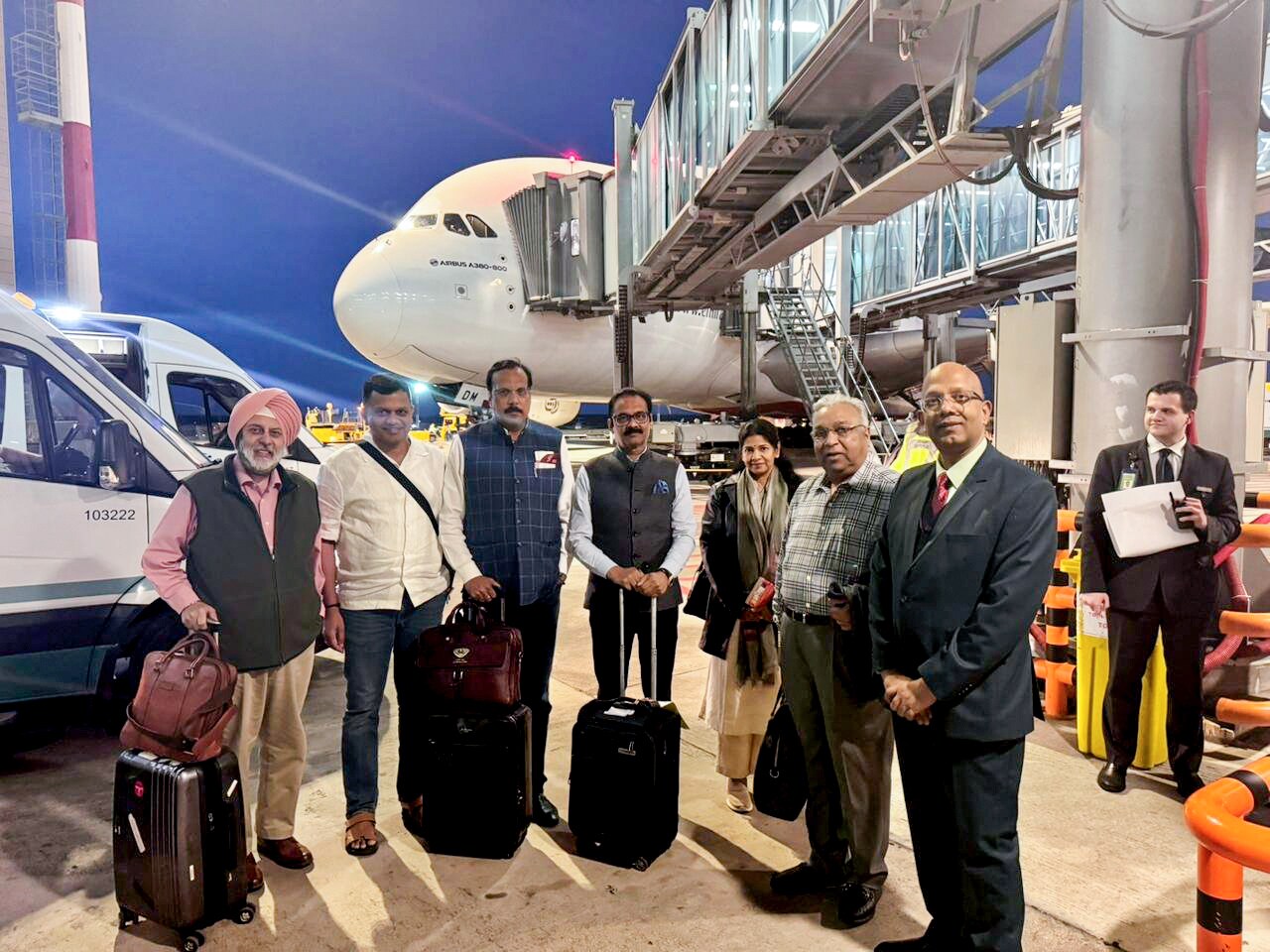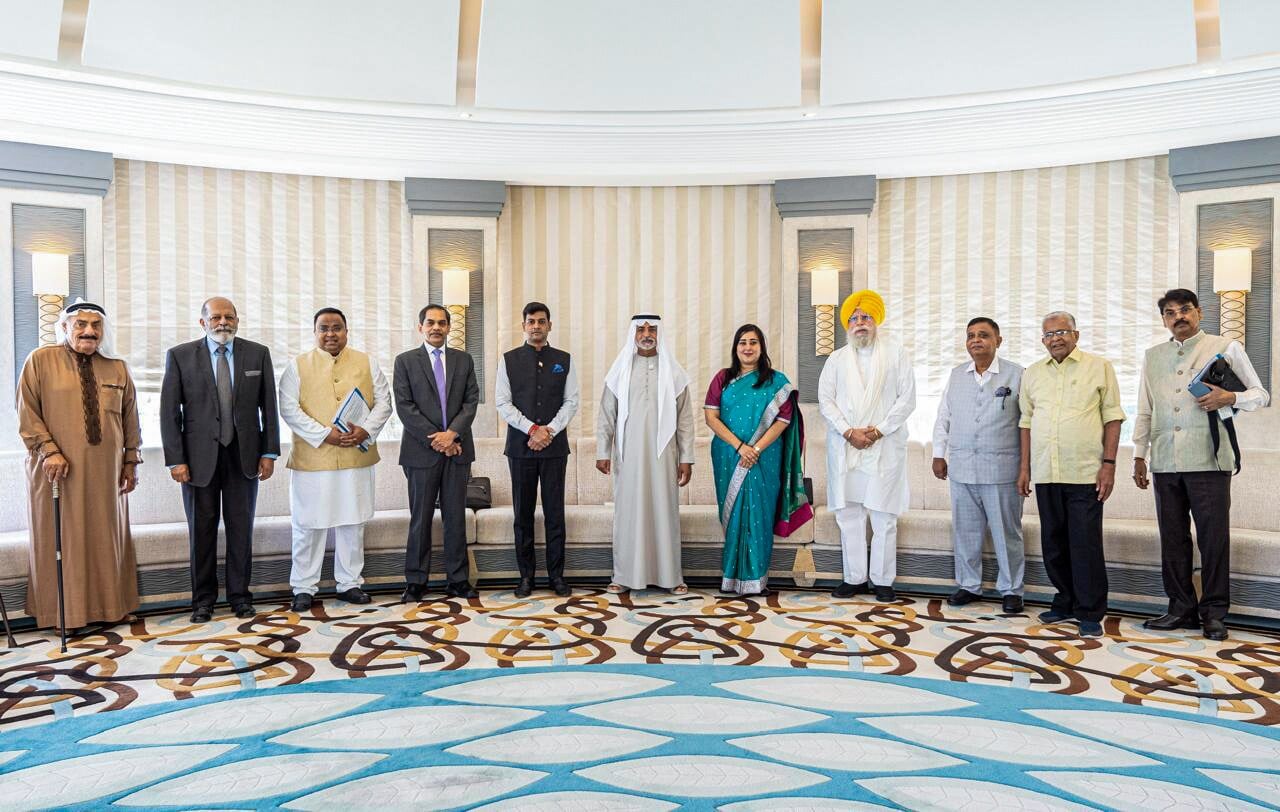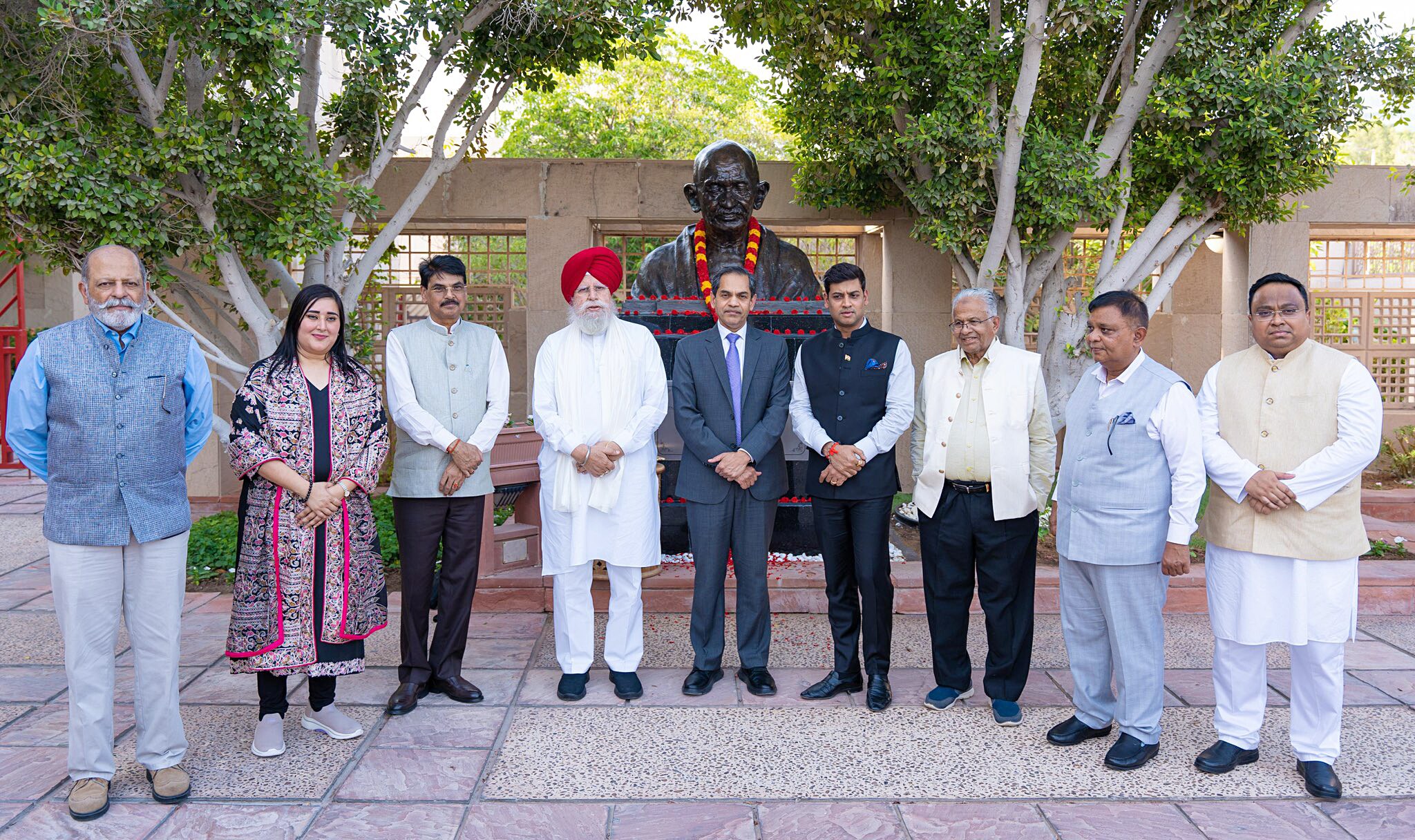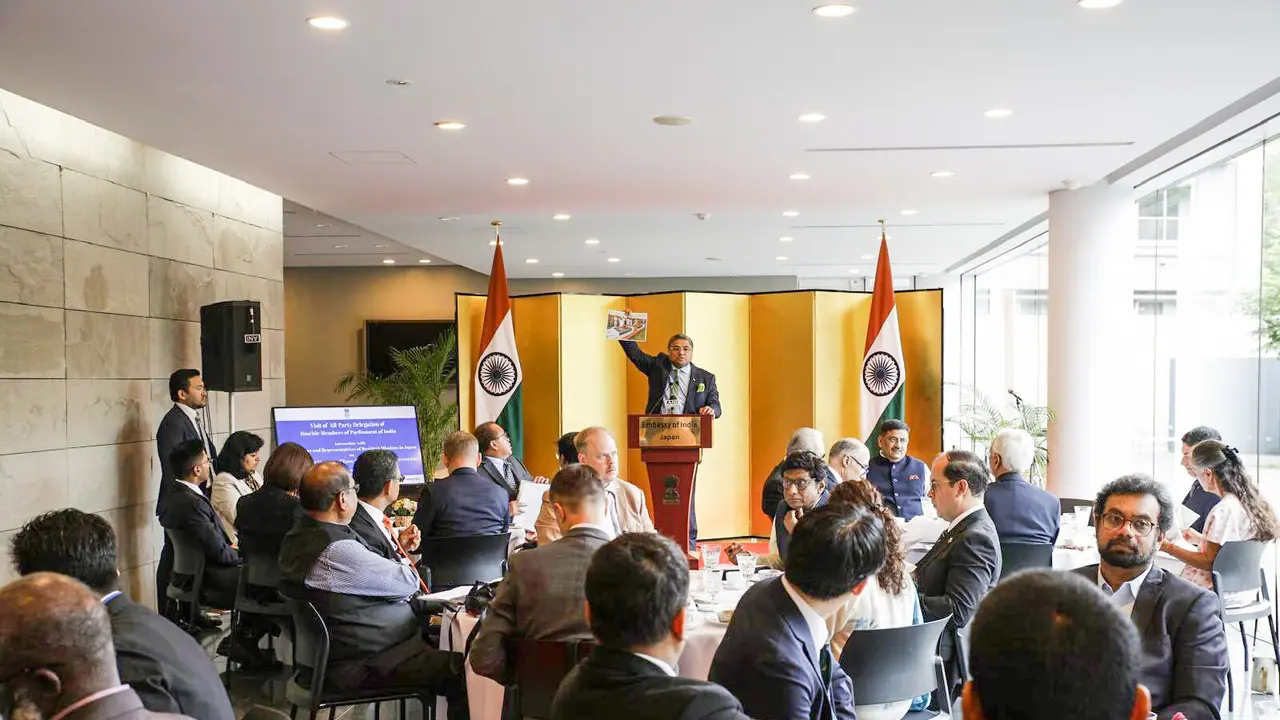India is conducting a global outreach with seven all-party parliamentary delegations visiting 32 key countries to build support against Pakistan-sponsored terrorism and push for the UN designation of The Resistance Front as a terrorist group.
New Delhi: In a bid to rally global support against Pakistan-sponsored terrorism and reinforce its policy of zero tolerance for terror—particularly in the wake of the Pahalgam attack and Operation Sindoor—India has launched a major international outreach campaign, dispatching seven all-party parliamentary delegations to 32 countries. Three of these groups have already embarked on their assigned missions.

The initiative involves 59 parliamentarians, including 31 MPs from the ruling National Democratic Alliance (NDA) and 20 from opposition parties. Each delegation is accompanied by at least one former diplomat to strengthen diplomatic engagement and strategic communication during the visits.
The delegations are being led by:
- BJP’s Baijayant Jay Panda (Group 1)
- BJP’s Ravi Shankar Prasad (Group 2)
- JD(U)’s Sanjay Jha (Group 3)
- Shiv Sena’s Shrikant Shinde (Group 4)
- Congress MP Shashi Tharoor (Group 5)
- DMK MP Kanimozhi Karunanidhi (Group 6)
- NCP (Sharad Pawar) leader Supriya Sule (Group 7)
The countries on the outreach list include Saudi Arabia, Kuwait, Bahrain, Algeria, the United Kingdom, France, Germany, Italy, Denmark, the European Union, Indonesia, Malaysia, South Korea, Japan, Singapore, the United Arab Emirates, Liberia, Congo, Sierra Leone, the United States, Panama, Guyana, Brazil, Colombia, Spain, Greece, Slovenia, Latvia, Russia, Egypt, Qatar, Ethiopia, and South Africa.
To better understand the strategic significance of engaging with these specific nations, Asianet News English spoke to former diplomats who have previously served in many of these countries.

Insights from Former Diplomats on Strategic Significance
Former diplomat Ambassador Prabhu Dayal (Retd), who had served in the United States, United Nations, Pakistan, Egypt, Iran among others said: “India is sending parliamentary delegations to 32 countries... The reason for that is all these are very important countries in the concept of decision making. These countries to which our delegations are going, are either currently members of the United Nations Security Council or will become next year or in 2027.”
“All the members will be playing a role as decision makers in the UN Security Council, either this year or 2026 or in 2027. It is very important from our point of view because they will have a pivotal role to play in the matter of terrorism,” Ambassador Prabhu Dayal added.
Despite China’s status as a permanent member of the UN Security Council (UNSC) and Pakistan’s position as one of its 10 non-permanent members, India has deliberately refrained from sending any parliamentary delegations to Beijing or Islamabad for obvious reasons.

On April 25, Pakistan and China jointly pressured the UNSC to remove The Resistance Front (TRF) from its press statement, despite strong opposition from India.
The Resistance Front, an offshoot of the banned terror group Lashkar-e-Taiba, initially claimed responsibility for the April 22 Pahalgam terror attack that killed 26 tourists. However, days later, the group retracted its claim, attributing it to cyber intrusion.
India has been actively campaigning for the formal designation of The Resistance Front (TRF) as a terrorist organization under the UN Security Council sanctions, specifically through the 1267 Sanctions Committee.
In this context, India had dispatched a technical team to New York to engage with the Monitoring Team of the 1267 Sanctions Committee and representatives from partner countries at the United Nations. The team also held meetings with the United Nations Office of Counter-Terrorism (UNOCT) and the Counter-Terrorism Committee Executive Directorate (CTED).

Challenges at the UNSC: Opposition from China and Pakistan
Former diplomat Ambassador Anil Trigunayat (Retd) explained that the UN Security Council (UNSC) comprises 15 members, and India’s delegations are visiting all except China and Pakistan.
“The delegations are going to these countries, except China and Pakistan. Apart from them, there are our strategic as well as trading partners also. Ultimately the matter about designating TRF as a terrorist entity is going to the United Nations, wherein Pakistan will be opposing it and China will try to hold it technically. Then only Pakistan will be exposed. This is the reason why our delegations are going to these countries,” he told Asianet News English.
Ambassador Prabhu Dayal further stated, "The terrorist activities which are directed against us from Pakistan are becoming increasingly important and we want to take up this issue very strongly in the UN Security Council and that is why our outreach to the countries which are either permanent member or would be non-permanent member either this year or next year or in 2027. This is very-very important.”
“The whole purpose is to sensitise these countries to our concern and bring them onboard when it comes to decision-making in regard to terrorism,” he added.
Apart from the P5 countries – the US, Russia, China, France and the UK, the elected non-permanent members of the UN Security Council are Algeria, Denmark, Greece, Guyana, Pakistan, Panama, Republic of Korea, Sierra Leone, Slovenia, and Somalia.


